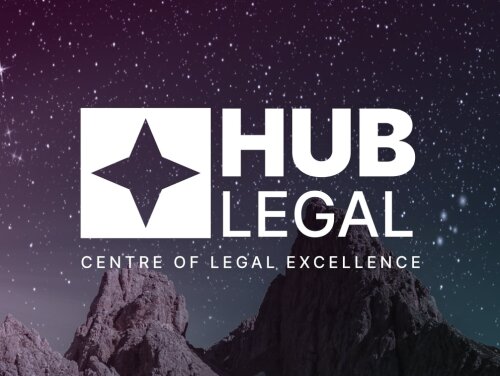Best Oil, Gas & Energy Lawyers in Republic of Lithuania
Share your needs with us, get contacted by law firms.
Free. Takes 2 min.
Or refine your search by selecting a city:
List of the best lawyers in Republic of Lithuania
About Oil, Gas & Energy Law in Republic of Lithuania:
Oil, gas, and energy play a significant role in the economy of the Republic of Lithuania. The country has been making efforts to diversify its energy sources and reduce its dependence on Russian gas. The legal framework governing the oil, gas, and energy sectors in Lithuania is complex and requires specialized knowledge to navigate effectively.
Why You May Need a Lawyer:
There are various situations where you may need a lawyer specializing in oil, gas, and energy law in Lithuania. Some common scenarios include negotiating contracts with energy companies, resolving disputes over land rights for energy projects, seeking compensation for environmental damage caused by energy operations, and ensuring compliance with local regulations and permits.
Local Laws Overview:
Key aspects of local laws relevant to oil, gas, and energy in Lithuania include the Energy Law, which regulates the production, distribution, and consumption of energy in the country. The Law on Hydrocarbon Taxation governs the taxation of oil and gas exploration and production activities. Additionally, environmental regulations play a crucial role in the energy sector to ensure sustainable practices.
Frequently Asked Questions:
Q: What are the licensing requirements for oil and gas exploration in Lithuania?
A: Companies looking to engage in oil and gas exploration in Lithuania must obtain an exploration license from the Ministry of Energy and the Mineral Resources Agency.
Q: How are energy prices regulated in Lithuania?
A: Energy prices in Lithuania are partly regulated by the National Energy Regulatory Council to ensure fair competition and consumer protection.
Q: What are the environmental requirements for energy projects in Lithuania?
A: Energy projects in Lithuania must comply with various environmental regulations, such as conducting environmental impact assessments and obtaining permits from the environmental authorities.
Q: What are the penalties for violating oil and gas regulations in Lithuania?
A: Violations of oil and gas regulations in Lithuania can result in fines, suspension of licenses, or even criminal charges, depending on the severity of the offense.
Q: Are there incentives for renewable energy projects in Lithuania?
A: Lithuania provides various incentives for renewable energy projects, including feed-in tariffs, tax breaks, and grants to promote sustainable energy sources.
Q: How can I protect my land rights in relation to energy projects?
A: It is essential to consult with a lawyer to review and negotiate land agreements with energy companies to protect your land rights and ensure fair compensation for the use of your property.
Q: What role does the government play in the oil, gas, and energy sectors in Lithuania?
A: The Lithuanian government plays a significant role in regulating and overseeing the energy sector to ensure energy security, promote competition, and protect the environment and public interests.
Q: What are the main challenges facing the oil, gas, and energy sectors in Lithuania?
A: Some of the main challenges facing the energy sector in Lithuania include reducing dependence on imported energy sources, transitioning to renewable energy, and ensuring energy security amid geopolitical uncertainties.
Q: How can a lawyer help me navigate the complexities of oil, gas, and energy law in Lithuania?
A: A lawyer specializing in oil, gas, and energy law can provide valuable legal advice, represent your interests in negotiations and disputes, ensure compliance with regulations, and help you protect your rights and investments in the energy sector.
Q: What are the current trends in the oil, gas, and energy sectors in Lithuania?
A: Some current trends in the energy sector in Lithuania include increased investment in renewable energy projects, digitalization of energy infrastructure, and efforts to reduce greenhouse gas emissions and promote energy efficiency.
Additional Resources:
For further information and resources related to oil, gas, and energy law in Lithuania, you can explore the Ministry of Energy, the National Energy Regulatory Council, the Lithuanian Confederation of Renewable Resources, and legal firms specializing in energy law.
Next Steps:
If you require legal assistance in the field of oil, gas, and energy in Lithuania, consider seeking a consultation with a specialized lawyer who can assess your situation, provide tailored advice, and help you navigate the legal complexities of the energy sector to ensure your rights and interests are protected.
Lawzana helps you find the best lawyers and law firms in Republic of Lithuania through a curated and pre-screened list of qualified legal professionals. Our platform offers rankings and detailed profiles of attorneys and law firms, allowing you to compare based on practice areas, including Oil, Gas & Energy, experience, and client feedback.
Each profile includes a description of the firm's areas of practice, client reviews, team members and partners, year of establishment, spoken languages, office locations, contact information, social media presence, and any published articles or resources. Most firms on our platform speak English and are experienced in both local and international legal matters.
Get a quote from top-rated law firms in Republic of Lithuania — quickly, securely, and without unnecessary hassle.
Disclaimer:
The information provided on this page is for general informational purposes only and does not constitute legal advice. While we strive to ensure the accuracy and relevance of the content, legal information may change over time, and interpretations of the law can vary. You should always consult with a qualified legal professional for advice specific to your situation.
We disclaim all liability for actions taken or not taken based on the content of this page. If you believe any information is incorrect or outdated, please contact us, and we will review and update it where appropriate.
Browse oil, gas & energy law firms by city in Republic of Lithuania
Refine your search by selecting a city.















